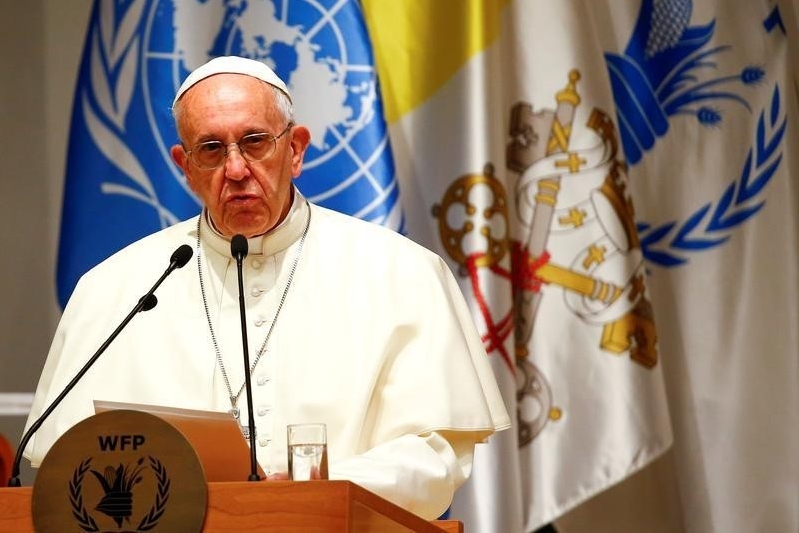
Pope Francis has slammed society's "obsession" with having a perfect body, arguing that it can lead to the marginalization of people who are disabled because they threaten the happiness of "the privileged view."
Speaking in his homily during Mass in St. Peter's Square in Vatican City on Sunday, Francis dedicated the celebration to the disabled community.
"It is thought that sick or disabled persons cannot be happy, since they cannot live the lifestyle held up by the culture of pleasure and entertainment," Francis said in his homily, according to the AP. "In an age when care for one's body has become an obsession and a big business, anything that is imperfect has to be hidden away, since it threatens the happiness and serenity of the privileged few and endangers the dominant model."
A number of disabled individuals were also involved in the mass, including a blind woman who read the Bible aloud using Braille. Disabled people in costume put on a skit of a parable from the Bible, while the liturgy was translated in sign language.
"The world does not become better because only apparently 'perfect' -- not to mention 'made-over' -- people live there," the pope said, but "when solidarity and mutual acceptance and respect increase."
The pontiff also criticized the mentality that it is better to keep disabled people "apart, in some 'enclosure' -- even a gilded one -- or in 'islands' of pietism or social welfare, so that they do not hold back the pace of a false well-being."
According to the NSIP, an estimated 48.9 million people, or 19.4% of the non-institutionalized civilians living in the United States, have a disability, and 24.1 million people have a severe or handicapping disability.
In a February interview with The Gospel Herald, Joni Eareckson Tada, founder of Joni and Friends, an organization accelerating Christian ministry in the disability community, urged the Church to be on the frontlines helping and supporting the disabled and their family members.
"Sometimes, we Christians tend to think that pro-life issues mainly surround a woman's uterus, what happens inside her womb," she said. "But to be pro-life is to care not only about what happens to that unborn baby yet in his mother's womb; pro-life perspectives extend to helping that child once that child is born with a disability. So many infants are born with seriously handicapping conditions, and their mothers and fathers take these little children home with these conditions, and suddenly their lives change and they become socially isolated, financially strapped, their patience runs out, they become angry, they're not connected with the mainstream of life."
She added, "This is an opportunity to show what a pro-life perspective really means, when we reach out and embrace these mothers, fathers and children with special needs. They should not have to suffer alone. God never intended for us to suffer alone. That's why He created the spiritual community, the Church. The Church needs to extend that pro-life perspective and care not only what happens to that baby in the womb, but what happens once he's born, and once he grows older, and once he becomes an adult - embracing those people with disabilities and their families and the church is a true pro-life stance."







